new posts in all blogs
Viewing: Blog Posts Tagged with: hello, Most Recent at Top [Help]
Results 1 - 13 of 13
How to use this Page
You are viewing the most recent posts tagged with the words: hello in the JacketFlap blog reader. What is a tag? Think of a tag as a keyword or category label. Tags can both help you find posts on JacketFlap.com as well as provide an easy way for you to "remember" and classify posts for later recall. Try adding a tag yourself by clicking "Add a tag" below a post's header. Scroll down through the list of Recent Posts in the left column and click on a post title that sounds interesting. You can view all posts from a specific blog by clicking the Blog name in the right column, or you can click a 'More Posts from this Blog' link in any individual post.
How have you all been?
Aside from catching a miserable cold and a 'flu pretty nearly at the same time, I've been good.
Not too much has been happening. I have an agent list going for a manuscript.
Once I get an acceptance on that.......I'll let you know.We watched the Lord of the Rings this week.
I always forget what an emotional rollercoaster that is. I cry every single time over every shattering event that occurs, and over the characters: Frodo and Sam, Merry and Pippin, Aragorn, Gandalf, Legolas, Gimli, Boromir, FARAMIR!!! Eowyn, Eomer, Arwen, Theoden.... If there is someone I can weep for, I weep, and prodigiously.
Fun fact: One of our bestest friends has never read the books nor seen the movies. She has only seen the last Hobbit movie (and let's be honest, friends. Peter Jackson could have done those so, so much better. What was wrong with keeping it just a bit more to the book?!), but anyway, we have told her frequently that LotR was WAY better than the Hobbit. So FINALLY we got her to watch the trilogy with us... the extended edition, of course. REAL fans watch only the extended LotR.
Not only did she cry as prodigiously as the rest of us (and this is a girl who rarely, if ever, cries over shows), but she now wants a cape and has been obsessively pinning Lord of the Rings on Pinterest and is reading the books now.
So I feel like we accomplished something this weekend.
In the meantime, I'm going to going the way I'm going and hope I figure out how to make more time in a single day. I need a TARDIS and some timey-wimey magic, I think.
Until my next emergence...
BYE!!!
Happy 2015… wishing you an inventive and effervescent new year, full of reasons to celebrate the whole year through. Champagne's on me!
 |
| © Holly DeWolf |

By: Lauren,
on 1/6/2011
Blog:
OUPblog
(
Login to Add to MyJacketFlap)
JacketFlap tags:
culturomics,
language,
words,
hello,
oed,
graphs,
google books,
Web of Language,
*Featured,
Lexicography & Language,
culturome,
Math,
Dictionaries,
google,
english,
chaucer,
chagall,
better pencil,
Dennis Baron,
Add a tag
By Dennis Baron
 People judge you by the words you use. This warning, once the slogan of a vocabulary building course, is now the mantra of the new science of culturomics.
People judge you by the words you use. This warning, once the slogan of a vocabulary building course, is now the mantra of the new science of culturomics.
In “Quantitative Analysis of Culture Using Millions of Digitized Books” (Michel, et al., Science, Dec. 17, 2010), a Harvard-led research team introduces “culturomics” as “the application of high throughput data collection and analysis to the study of human culture.” In plain English, they crunched a database of 500 billion words contained in 5 million books published between 1500 and 2008 in English and several other languages and digitized by Google. The resulting analysis provides insight into the state of these languages, how they change, and how they reflect culture at any given point in time.
In still plainer English, they turned Google Books into a massively-multiplayer online game where players track word frequency and guess what writers from 1500 to 2008 were thinking, and why. The words you use tell the culturonomists exactly who you are–and they can even graph the results!
According to the psychologists and mathematicians on the culturomics team, reducing books and their words to numbers and graphs will finally give the fuzzy humanistic interpretation of history, literature, and the arts the rigorous scientific footing it has lacked for so long.
For example, the graph below tracks the frequency of the name Marc Chagall (1887-1985) in English and German books from 1900 to 2000, revealing a sharp dip in German mentions of the modernist Jewish artist from 1933 to 1945. You don’t need a graph to correlate Hitler’s ban on Chagall and his work with the artist’s disappearance from German print (other Jewish artists weren’t just censored by the Nazis, they were murdered), but it is interesting to note that both before and after the Hitler era, Chagall garners significantly more mentions in German books than he does in English ones.
One problem with the culturome data set is that books don’t always reflect the spoken language accurately. When the telephone was invented in 1876, Americans adapted hello as a greeting to use when answering calls. Before that time, hello was an extremely rare word that served as a way of hailing a boat or as an expression of surprise. But as the telephone spread across American cities, hello quickly became the customary greeting both for telephone, and then for face-to-face, conversation.
Expanding the data set of written English to include not just books but also newspapers, periodicals, letters, and informal writing, as we find in the smaller, 400-million word Corpus of Historical American English, gives a better idea of the frequency of words like hello. But crunching numbers doesn’t tell the whole story: we can infer from contemporary published accounts, many of them strong objections to the new term, that hello is much more common in speech than its occurrence in writing indicates.
It’s one thing to read a book and speculate about its meaning—that’s what readers are supposed to do. But culturomics crunches millions of books—more than the most ardent book club groupie could get through in a lifetime. Since mos
By:
mrana,
on 5/21/2009
Blog:
Bit by Bit
(
Login to Add to MyJacketFlap)
JacketFlap tags:
magicked frog,
turn over a new leaf go green,
illustration,
Animals,
typography,
Drawings,
cards,
Daily Sketches,
hello,
Dabbling,
text design,
typography design,
Colored Pencil,
bertha,
floating lemons,
bella,
Add a tag
It's not that I haven't been trying to make time to draw, but Life keeps getting in the way so I doodled a few type designs and then finally managed to draw this "Magicked Frog" to accompany a sweet story by a friend of mine. Had loads of fun doing them all but am still at my wit's end where time is concerned, reorganizing my home now that my shipping finally arrived from Australia ... here is what I've been playing with in between cleaning, clearing, unpacking and running errands:


Go Green Leaf cards and products at Floating Lemons Typography at Zazzle

Bertha blue cards and products at Floating Lemons Typography at Zazzle

Bella pink cards and products at Floating Lemons Typography at Zazzle

Hello purple cards and products at Floating Lemons Typography at Zazzle
I'm hoping to finish up household tasks and errands as soon as possible and get back to more drawing and blogging. WIsh me luck. Cheers.

By:
mrana,
on 1/10/2009
Blog:
Bit by Bit
(
Login to Add to MyJacketFlap)
JacketFlap tags:
books,
illustration,
fun,
cute,
drawing,
Animals,
Drawings,
cards,
Daily Sketches,
thank you,
hello,
Colored Pencil,
artwork,
pink elephant,
whimsical,
swimming pool,
delightful,
floating lemons,
diving,
Add a tag

Forget perspective. Forget realism. Just have fun :)
Drawing in coloured pencil. The green background was digitally added after I'd scanned the drawing in.

By:
mrana,
on 10/15/2008
Blog:
Bit by Bit
(
Login to Add to MyJacketFlap)
JacketFlap tags:
Bornean sun bear cub,
wildlifedirect,
illustration,
donation,
drawing,
Animals,
Charity,
Drawings,
Daily Sketches,
greetings,
hello,
Colored Pencil,
artwork,
conservation,
save,
floating lemons,
Add a tag

Help save the Bornean Sun Bear! All proceeds from any sales of products with this design on them will be donated to the setting up and funding of the Bornean Sun Bear Conservation Centre (BSBCC) at Sepilok, East Malaysia, where sun bears rescued from captivity will be housed and cared for in natural enclosures before being released, wherever possible, back into the wild. For more information please go to http://sunbears.wildlifedirect.org.
This drawing took me far longer than any one preceding it. Probably because it is to go up for auction, which made me extremely nervous ... the original photograph by Siew Te Wong is up at http://sunbears.wildlifedirect.org/page/2/.
I'm exhausted. It's been a long and chaotic couple of months and I now have to get down to organising myself and getting back to normal. Whatever 'normal' may be :)
Sun Bear Cub Card and products up at Zazzle.


By: Rebecca,
on 10/1/2008
Blog:
OUPblog
(
Login to Add to MyJacketFlap)
JacketFlap tags:
A-Featured,
Oxford Etymologist,
Lexicography,
Dictionaries,
hello,
etymology,
anatoly liberman,
word origin,
hallo,
eala,
halloo,
halon,
Add a tag

By Anatoly Liberman
Interjections of all kinds are harder to trace to their origin than many people think (consider wow, ouch, oops, and even hey, hi, ho). The history of hello poses no formidable difficulties, but, as usual in etymological studies, there is a hitch. In the Oxford English Dictionary, the earliest citation of hello has the date 1883 because the main entry appears under hollo ~ hollow (1542); hello is said to be akin to holla (1523) and borrowed from French; it was an exclamation calling attention or meaning “stop.” The other forms are holloa, halloa, hullo, hulloa, and halloo. They look like so many spelling variants of the same word.
The first tentative explanation of the origin of hallo connected the English word with French au loup, au loup, the cry heard in the chase for setting dogs on the wolf. This derivation, though almost certainly wrong, is realistic, for in English the language of the hunt owes a great deal to the Anglo-French of the Normans. The Middle English verbs hallow and its near doublet halloo “to pursue with shouts” were used for inciting dogs; both also seem to be of French origin. In addition, we find French halali, still another sportsman’s cry. The broader picture suggests that all those words are sound imitative. For example, alala existed in Hebrew and classical Greek, and several variants of ala ~ ola ~ ole are well-known from the Romance languages. Even French aller “to go,” supposedly, an alteration of Latin ambulare, is believed to have originated in some imperative like allele, while allons “let us go” is not too far removed from (h)allo. The plot thickens the moment we realize that, at least today, hello (whatever the spelling) is used to greet people (hence its adoption in telephone communications), rather than urge dogs on, and especially when we look beyond English and French.
I never miss a chance to refer to The Century Dictionary. It is a splendid but sadly underestimated work. Here is what Charles P. G. Scott, the etymologist for The Century Dictionary, wrote under hallo (I have expanded his abbreviations): “Such forms, being mere syllables to call attention, are freely varied for sonorous effect; hallo, hello, halloo may be regarded as the modern representatives of the common Anglo-Saxon [= Old English] ea la or eala, used similarly to call attention, whether loudly from afar, like hallo, hello, halloo, or quietly from near by, like hello colloquially, or like modern ah, oh, well, and similar preliminary syllables. Anglo-Saxon ea represents Engl. ah or oh, and la is Engl. lo. These forms, in hunting use, are represented by Old French halle, an interjection of cheering or setting on of a dog, Modern French haler ‘set (dogs upon one), encourage with shouts’. So German hallo, halloh, perhaps after the English. The form hallow, as a noun or verb, with accent on the first syllable is a variant of hollow, hollo, holla, now scarcely used as an interjection, and is in so far different from hallo, hello…. Cf. hullabaloo.” We will not compare hello with hullabaloo because a special post was at one time devoted to hullabaloo, but will wonder at the generosity of The Century Dictionary that allowed its etymologists to write so much about even such an outwardly insignificant word as hallo. Scott’s most interesting idea is that Old English had an interjection strikingly similar to hello. However, he does not say that its reception may have been facilitated by the existence of a native one. His phrases about ah ~ oh representing Old Engl. ea and about the Old English phrase being represented by Old French halle” are unclear (what is “represent”?). We would also want to know why the English forms surfaced only in the middle period and why they were invariably spelled with h-. Are they French newcomers that supplanted eala?
Further complications confront us on German soil. According to a once popular theory, German hallo goes back to the verb halen ~ holen “fetch, get,” a cognate of Engl. haul (Engl. hale “draw, pull” is a borrowing of French holer, but in French this verb is of Germanic origin; Engl. hale “greet” is a different word, related to whole). Allegedly, its ancient meaning was “to call,” and the forms hala, hola arose when long a (that is, a vowel as in Engl. father) was added to the imperative, with stress on the second syllable; the reinforcing particle a has indeed been recorded. Those words, as the story goes, were used in calling a ferryman, asking someone in the house to come out, and so forth. The problem with this ingenious hypothesis is that German halon ~ holon never meant “call.” Only Latin calare “call” and its Greek cognate suggest that such a meaning existed. But the kinship of halon with calare cannot be proved: the sounds match, whereas the meanings do not. Modern German researchers treat the old theory with respect but without enthusiasm. I find it as hard to accept as Scott’s (hallo from Old Engl. eala).
Is it possible that practically the same interjection in English, French, and German comes from three different sources? This would be the conclusion if we derived them from eala, an onomatopoeic shout, and hal- + a respectively. At first blush, such a conclusion seems to be unlikely. I think it will remain unacceptable even if we keep blushing. Eala should be ruled out because it lacks h-. Halon fails because the necessary meaning did not exist. So onomatopoeia remains as the only viable (“sustainable,” to use the latest buzzword) solution. Yet it may be that folk etymology and the existence of similar interjections (some primitive shouts like alala) helped the French word to stay in English. Scott’s conjecture that German hallo is from English has not been supported by factual evidence. Language contacts played a noticeable role in the history of the European word hallo, but the direction of borrowing is not always clear. Etymologists often work in isolation, and it is a pity that English scholars are sometimes satisfied with their proposals and their German colleagues with theirs, in disregard of what happens in the languages of their neighbors. We say hello to one another across state borders, but the root of the greeting has not been exposed.

Anatoly Liberman is the author of
Word Origins…And How We Know Them as well as
An Analytic Dictionary of English Etymology: An Introduction. His column on word origins,
The Oxford Etymologist, appears here, each Wednesday. Send your etymology question to
[email protected]; he’ll do his best to avoid responding with “origin unknown.”
ShareThis
 Last week, Charlesbridge heard the good--no, make that great... stupendous, joyous, and all--news that Hello, Bumblebee Bat, by Darrin Lunde and illustrated by Patricia Wynne, won a Theodor Seuss Geisel Award Honor. We were overjoyed and beside ourselves with glee. So, we had cake and champagne to celebrate. The cake lady misspelled 'bumblebee', but that's okay. She just won't win a Geisel Honor.
Last week, Charlesbridge heard the good--no, make that great... stupendous, joyous, and all--news that Hello, Bumblebee Bat, by Darrin Lunde and illustrated by Patricia Wynne, won a Theodor Seuss Geisel Award Honor. We were overjoyed and beside ourselves with glee. So, we had cake and champagne to celebrate. The cake lady misspelled 'bumblebee', but that's okay. She just won't win a Geisel Honor.

And here we are at ALA-Midwinter with our popular poster of Lola at the Library. The lucky winner of the poster raffle is Monica Rhue of James B. Duke Library in Charlotte, North Carolina. Congrats!
Posted by Donna
You have a massive home library right? Kimbooktu wants to see it! Send her a picture!
Here are some random reviews of books I read too long ago and don't really remember...
Snap by Alison McGhee
Edwina is a big OCD, I think. Her arm is covered in rubber bands to remind her of things. Covering her mouth when she laughs, not to tip back in chairs... whenever she forgets one, *snap*. In addition there are the lists that order her life. Edwina's friend Sally's grandmother, Willie, is dying. Without Willie, who will take care of Sally? What Sally needs is support and someone to be there, but Edwina hates change so much, she'd rather ignore what's going on than be a good friend.
Well written, but it in the end, it just left me underwhelmed. Maybe if it was longer, but, I was pretty bored by the end. It never grabbed me.
Dear Baby Girl by Jane Orcutt
This was my first forray into Christian fiction. Merrilee is 15 and pregnant. Recently orphaned, she's on her way to Austin to have her baby and put it up for adoption. The book changes view points between Merrilee and the letters she's writing to her unborn child, and the couple who will be adopting the baby.
The God aspect didn't bother me. What bothered me was this:
Merrilee lived in a trailer with her mom, a woman with a, er, reputation. One day, Merrilee goes to the lake with her mom's boyfriend's son, who rapes her, she ends up pregnant. When her mom finds out how Merrilee got knocked up, she commits suicide.
Why is it in books on teen pregnancy, the girls are always poor and from the wrong side of the tracks? And if they're "good girls" they're NEVER good girls who made a mistake, but rather rape victims?
And the ending? Gargh.
That, and Merrilee was pretty flat as a character. I mean, after such a crappy thing, I think it would have been MUCH more believable if Merrilee had just once questioned her faith, or at least was a little angry at God for testing her in such a manner.
.jpg?picon=380)
By:
Just One More Book!!,
on 4/24/2007
Blog:
Just One More Book Children's Book Podcast
(
Login to Add to MyJacketFlap)
JacketFlap tags:
Podcast,
Family,
Ages 0-3,
Ages 4-8,
Formal,
Picture book,
Girl,
Woman,
Beautiful,
Appreciation,
childrens book,
Ages 9-12,
Hope,
Life and death,
Cartoony,
All ages,
Peter H. Reynolds,
Love/Romance,
Alison McGhee,
blessing,
prayer,
Someday,
wish,
review,
Add a tag
Author: Alison McGhee
Illustrator: Peter H. Reynolds
Published: 2007 Simon and Schuster
ISBN: 1416928111 Chapters.ca Amazon.com
Breezy illustrations and stirring text whisk mother and daughter through memories of the precious past and into dreams of a richly textured future in this hopeful celebration of life and love.
Other books mentioned:
Ish
So Few of Me
Hush, Mama Loves You
Tags:Alison McGhee, blessing, childrens book, Peter H. Reynolds, Podcast, prayer, review, Someday, wishAlison McGhee, blessing, childrens book, Peter H. Reynolds, Podcast, prayer, review, Someday, wish

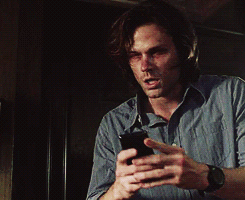

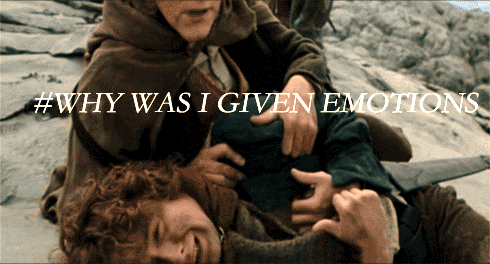

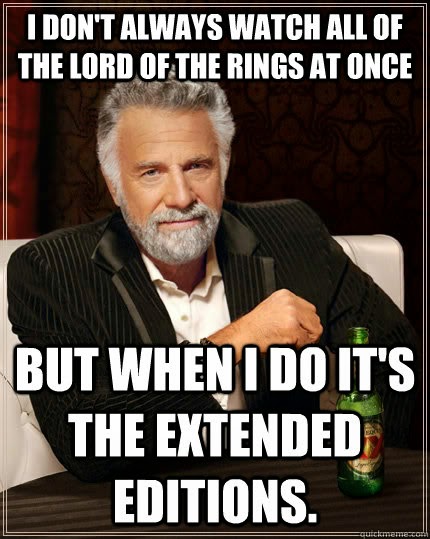

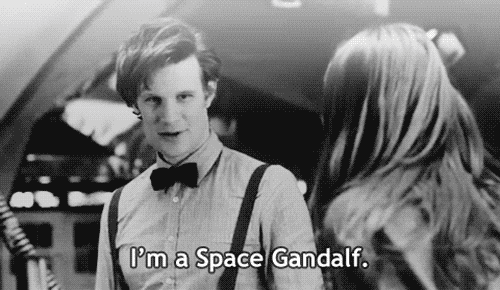






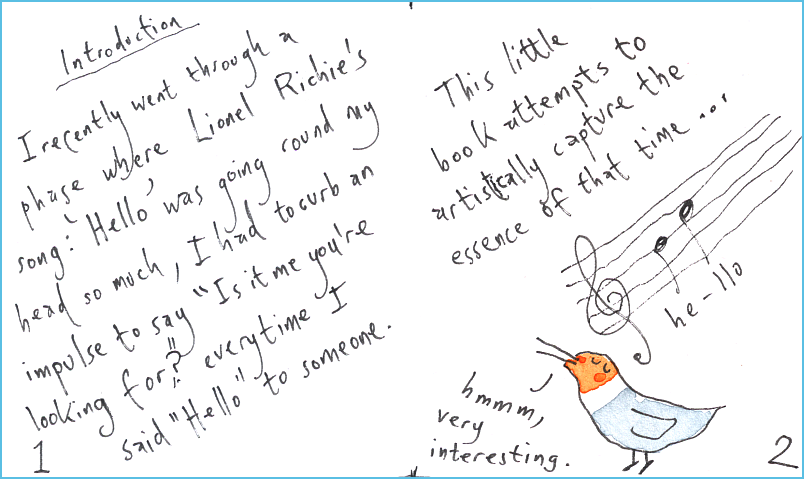



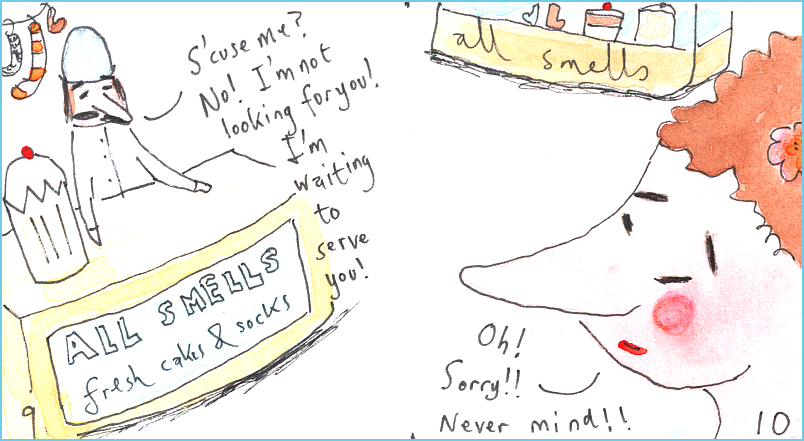




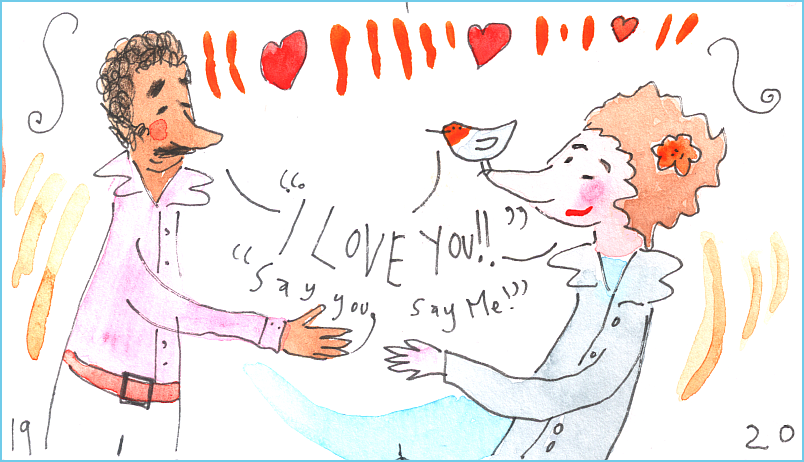












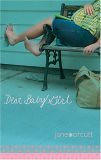
What’s not to love … great song, great singer, great illustrated story.
Judy B
Dear Linda, I smiled a lot, the smile is still on my face… Thanks for reminding me this song (and “thanks!” for pushing it in my head now…:0)!!! liked it and knew it by heart when I was young… And now I found out I haven’t forgotten the words… “…And I wonder what you do – are you somewhere, feeling lonely, or someone’s loving you?…” I enjoyed the story and you are absolutely right – the man, who appears at its end has NOTHING in common with Lionel Ricchie!:))))) I like your whimsical style – the “All Smell”shop, the violin-like leaves, but mostly – the giraffe in her/your dream…
Nice to be here!!
Have a great week, with another song in your head!x
Hahahahaha! I enjoyed this immensely! Yes, yes, yes, it’s you I’m looking for. Incredibly delightful, Linda. And I am sure you never look slightly constipated. Even when slightly constipated.